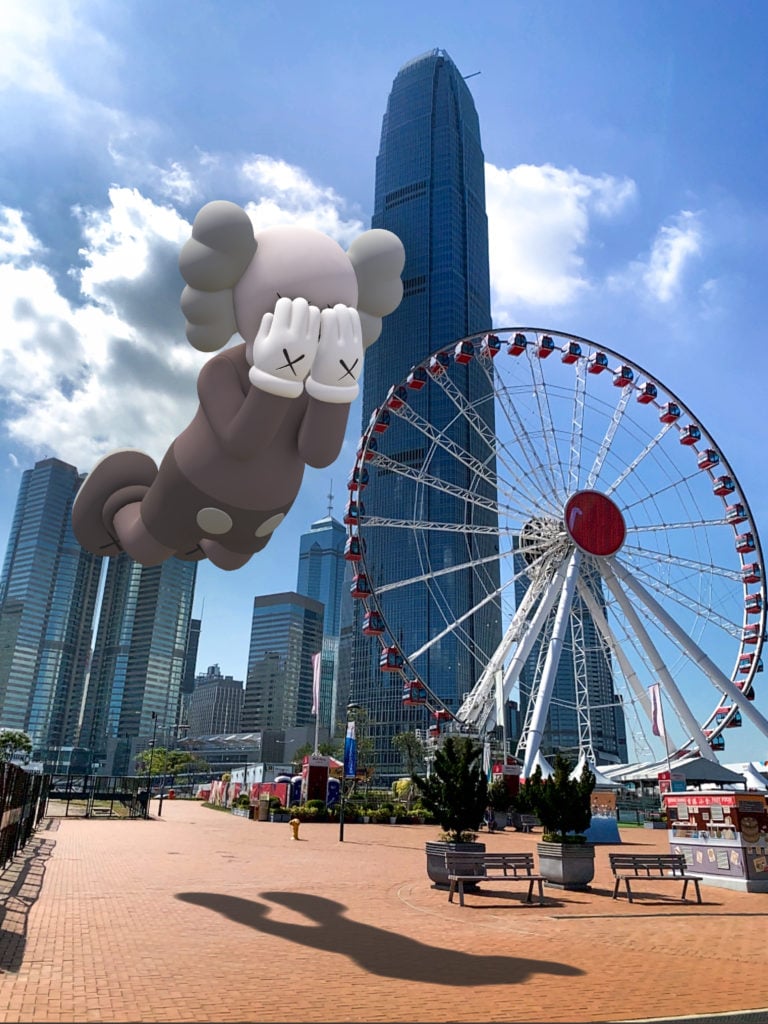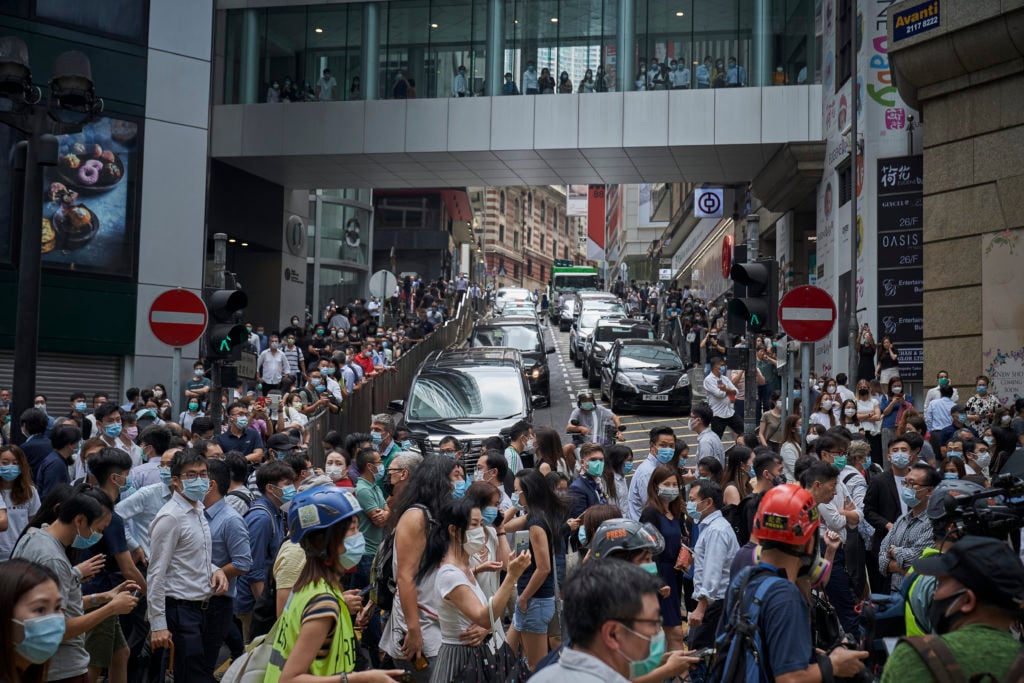Politics
Claiming China’s Crackdown Will Do ‘Incalculable’ Damage to Hong Kong’s Culture, 1,500 Arts Workers United in Protest of the Move
Artists and cultural leaders are alarmed at the prospect of the restrictive new law.

Artists and cultural leaders are alarmed at the prospect of the restrictive new law.

Eileen Kinsella

News that Beijing is preparing to pass a law that would allow Chinese agencies to criminalize acts deemed threatening to China’s national security has sent shockwaves through the city and reignited pro-democracy protests that had quieted during its lockdown.
Though the details have not been fully revealed, there is widespread concern that the law—which Secretary of State Mike Pompeo described as a “death knell” for Hong Kong—could severely curtail free speech and artistic expression. More than 1,500 organizations and members of the creative industry have now signed a petition expressing shock and fear about its potential impact on Hong Kong’s seven million citizens.
The petition, first reported by Art Asia Pacific, states that the law could create “a climate of fear and self-censorship that harms artistic expression, free speech, cultural exchange, and even personal security. The consequent damage to the image of Hong Kong as a cultural metropolis and to the economy will be incalculable.”
They also decry the fact that the law will be deliberated over the course of just five days and voted on in Beijing without, they say, any consultation whatsoever of the Hong Kong citizens who will be affected. Signatories of the petition include artist Samson Young, curator Inti Guerrero, and arts editor Nicolette Wong.

Hundreds of demonstrators flood the streets of Hong Kong on May 27, 2020. The mass protests in Central followed a morning of relative calm as lawmakers prepared to debate a contentious national anthem law at the Legislative Council. (Photo by Tang Yan/SOPA Images/LightRocket via Getty Images)
As outlined, the proposed national security law forbids activities, speech, and other forms of expression that could be interpreted by Chinese authorities as acts of secession, subversion, or organized terrorism. The vote on the law is scheduled to take place on May 27; passage is likely, according to reports.
The petitioners note that the law could have a dramatic impact on the freedom and cultural life of Hong Kong. They write:
Will a stage drama about June 4 [the day of the Tiananmen Square protests] be regarded as a subversion of state power? Will participating in an international arts festival or inviting foreign artists to Hong Kong for artistic exchange be considered as inducing intervention by foreign countries or foreign forces? Will lyrics about anti-extradition protests be labelled as inciting terrorist activities? Will film dialogue referring to a female character’s costume as ‘Taiwanese’ be accused of hurting national feelings, violating the principle of one China and splitting the country? Will arts education programs be funded only if ‘national security’ elements are included? Who will enforce the law if it is broken? Will offenders be arrested by personnel from organizations set up by the Central Government authorities overseeing national security? Will they be sent to the mainland for trial and sentence? We are extremely worried that speech crimes, like a sword of Damocles hanging over our heads, will create chilling effects and remove the freedom not to glorify the existing regime.
The group is urging Ma Fung-kwok, a longtime Hong Kong legislative councillor for sports, performing arts, culture, and press who is a member of the Hong Kong delegation to the National People’s Congress, to refuse to vote for the law.
Meanwhile, Secretary of State Pompeo told US Congress yesterday that the State Department no longer considered Hong Kong to have significant autonomy under Chinese rule, according to the New York Times. The reclassification indicates that the Trump administration is likely to end some or all of the US government’s special trade and economic relations with Hong Kong.